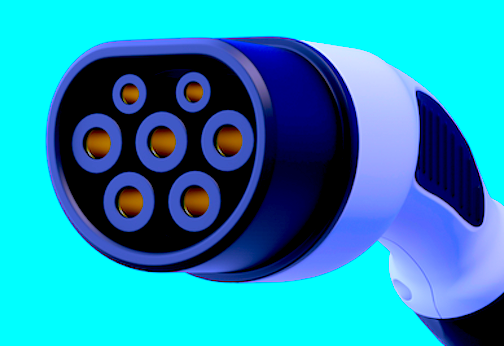The National STEM Consortium (nationalstem.org) reports that there are now over 2.6 million hybrid and electric vehicles on the road in the United States. According to a World Bank study, by the end of 2020, the world-wide electric-vehicle value chain will likely be greater than $250 billion, which will only increase the need for more technically-capable workers.
Energy prices, environmental concerns, policies, and regulations, along with fuel-economy targets are (and will be) driving the demand for hybrid- and electric-vehicle technicians now and into the future. That’s why dealerships, repair shops, and body shops are already coming under greater pressure to deal with maintenance of the batteries and high-voltage electrical components in these vehicles.
Note that electric-drive vehicles are not all the same. Among the hundreds of global makes and models, there are three basic types in the market: hybrid-electric vehicles (HEVs); battery-electric vehicles (EVs); and plug-in hybrid electric vehicles (PHEVs). This fleet of HEVs, EVs, and PHEVs includes, among other important things, passenger vehicles, buses, delivery trucks, garbage trucks, and over-the-road-hauling trucks.
The reliability of these new vehicles is dependent upon three elements: the inherent reliability of the design and manufacture; the standardized operations-and-maintenance-work processes; and the applied skills and knowledge of the people who operate and maintain the vehicles. Alas, shortages of automotive technicians with new skill sets is growing exponentially, as more and more businesses, fleet operators, and transportation systems turn to hybrid and electric vehicles.
The lack of qualified electric-drive-vehicle technicians, in turn, will severely limit the performance and reliability of those fleets. Consider what studies published by the UK’s Institute of the Motor Industry (IMI) in 2018 revealed: As many as 97% of active auto mechanics weren’t qualified to work on electric cars. Worse, of that 3% of auto mechanics who were qualified, the vast majority of them were employed at manufacturer dealerships, thus presenting prospective EV buyers with very limited service options.
The solution, however, goes beyond simply learning new, routine maintenance and repair techniques. While maintaining an electric or hybrid car, truck, or van is often no more difficult than maintaining one powered by a combustion engine, technicians must be specially trained to avoid getting shocked by the electrical system. The first Toyota Prius electric-drive system operated with around 200 volts. A growing number of electric-drive vehicles are now operating at 400 or 600 volts. And development of those with 1,000 volts is ongoing. This brings up questions about arc flash protection when exposing the live electric circuits in these vehicles.
On a related note, qualified maintenance technicians aren’t the only workers we’ll need. Electric-type vehicles involved in accidents will require new skill sets from first responders. Damaged batteries, exposed high-voltage circuits, and submerged vehicles all present new, safe-work challenges. The good news is NFPA’s Alternative Fuel Vehicles Safety Training Program has come to the rescue with training and information for emergency responders to safely handle emergencies involving alternative-fuel vehicles. This program offers customized training for the Fire Service, EMS, Fire Investigation, Crash Reconstruction, and Tow & Salvage communities. But that’s the NFPA.
What can you and/or your organization do about the growing technician-skills crisis? Prepare your technicians now to address the nuances and dangers of electric-driven vehicles as parts of your business shift to these alternative-fuel models. In the meantime, stay tuned for my upcoming sustainability-related article on the true cost of electric vehicles. There are two sides of that coin.TRR
ABOUT THE AUTHOR
Bob Williamson is a long-time contributor to the people-side of the world-class-maintenance and manufacturing body of knowledge across dozens of industry types. His background in maintenance, machine and tool design, and teaching has positioned his work with over 500 companies and plants, facilities, and equipment-oriented organizations. Contact him directly at 512-800-6031 or bwilliamson@theramreview.com.
Tags: reliability, availability, maintenance, RAM, automotive technicians, training and qualification, electric-drive vehicles, hybrid-electric vehicles, HEVs, battery-electric vehicles, EVs, plug-in hybrid-electric vehicles, PHEVs, electrical safety, NFPA, arc flash, sustainability, sustainable manufacturing



